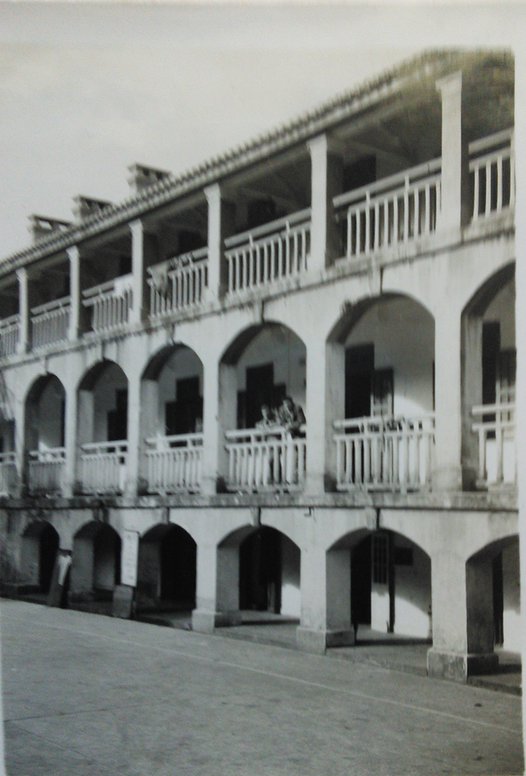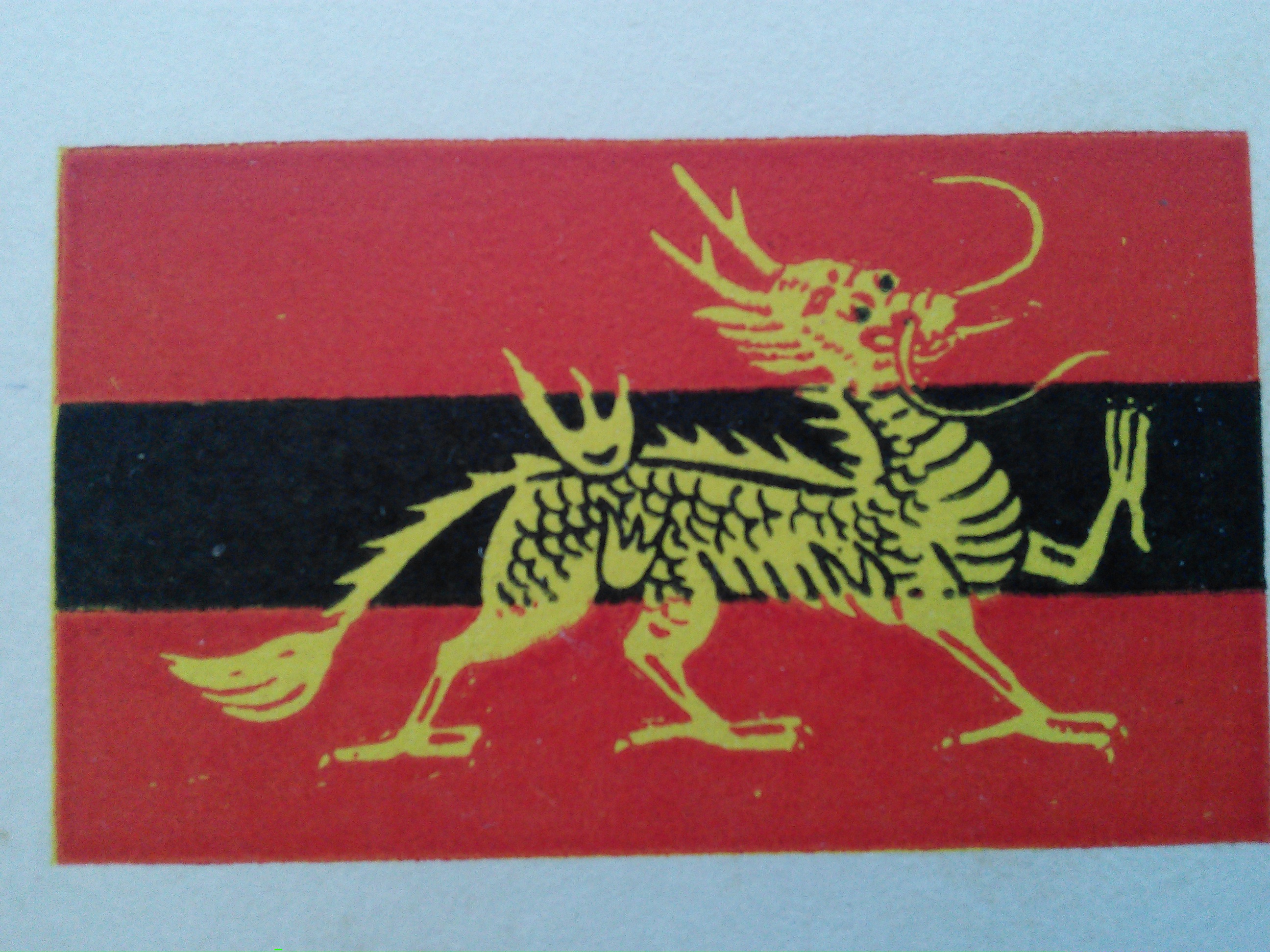
These articles are about the Army when I did my National Service. They were written with the aid of a five-year diary and later between working hours during early morning shifts.
A SOLDIER'S TALE (10)
It was on the last leg of this, by now, very tedious voyage that I lost my camera, cigarette case and watch, which required visits the guardroom tucked into the smelly stern bowels of the ship to see if, by chance, some honest soldier had handed something in. It was a dank spot and the granite-hard Redcaps eyed me suspiciously each time I presented myself to them.
"Look here soldier, what makes you think that in this blooming hulk, near a thousand troops of all sorts and colours, you have a hope in hell of getting them back? You must be flaming mad. Go away, we've got more than enough to do." I took the hint and gave up. Yet for days I eagerly, but increasingly hopelessly, eyed every wrist and every watch which passed me by. I became almost paranoid about the Leicestershire Regiment. "Lay off", cautioned Mike. "Else you'll be the next one to disappear overboard in the middle of the night".
A Gurkah nearby who had who had been polishing his vicious-looking kukri nicked his finger gently and replaced it in his scabbard, grinning happily. I shut up. (A Gurka's kukri knife must always draw blood once it is removed from its scabbard) So the month-long voyage came to a whimpering close with a day of bulling in preparation for disembarking at Kowloon at 0900 the next day. But in true army style we had to wait all morning to set foot on the colony.
The three of us leaned on the rail sniffing the air laced with smells of sewage, cedar-wood, and diesel fuel, sampans beetling about the harbour, and chatted desultorily. So this was Hong Kong. The jewel in the East etc... Modern office blocks set against rugged frowning hills, the craggy Peak, neoned waterfront and modern Yankee cars with the new flashing indicators instead of trafficator arms, and hundreds of hurry-scurry Chinese. Blighty seemed a long way away.
Eventually a ubiquitous Bedford whisked us up to HQ RASC for documentation. Then on to 983 Transport Company where the food, which included melon for tea, was marvellous and eaten in pleasant surroundings in the nearest approach to an "other ranks" dining room. It was my first experience of a working unit as opposed to the vast training and transit camps in the UK, and I relished it. We slept for the first and last time under mosquito nets, for on the island itself, where two of us were to move the next day, they were not considered necessary.
Victoria Barracks, opposite the naval dockyard, was almost in the centre of the business and commercial area of the colony. But they looked as if they had been built at the turn of the century. Erected on terracing on the hillside, the concrete-faced two-storey billets with pantiled roofs conformed to a pattern other than the level ground. And there were gaps in the buildings which appeared to be caused by the ravages of the Japanese in World War Two. Although one could walk on to the NAAFI roof from the veranda surrounding the billet, so steep was the ground. But there was a basket-ball pitch and parade ground on the other side - and oh joy, a swimming pool.

The arrival of privates Hall and Gatcum (Mike had been posted elsewhere in the colony) coincided with a holiday for the King's birthday, so we had plenty of opportunity to explore our new surroundings and the social services. Underneath the billet, in gloomy cave-like surroundings squatted a Chinese barber and family, while next-door was the cobbler. The old grey-haired parchment-faced woman at the end of the verandah was "SewSew" who could mend any clothes, darn socks exquisitely - and provide girls if required.
Then up the corridor past the double bathrooms, a roofed concrete pond turned out to be the barrack laundry, and home for a large chattering Chinese family who from time to time spat in the "stew", washed their feed in it, and for all we knew, piddled in it too. But, if you wanted your jungle greens turned out spotlessly, pressed correctly and slightly starched for a few cents, you wisely ignored such English niceties because one could hardly believe their creativity could produce such razor-edged uniforms.
We discovered that Johnny Gatcum had been allocated to Q Branch at the stark white headquarters shared with the Navy and the RAF just a step up the hill, while I was for G Branch. He would be concerned with supplies, while I would work with training and actual operations. And, more joy, we had to wear shoes instead of boots! "We cannot have noisy blighters clattering up and down the corridors waking up the staff officers", I was told. And on Saturdays we could wear civvy clothes.
More documentation followed the next day, when the camp commandant's second-in-command took the opportunity to give us a further talk on the dangers of associating with prostitutes. We also learned that most of the district known as Wanchai - just down the road - was out of bounds for the same reason. Odd, wasn't it, that when the Midddlesex Regiment made it's last stand in the defence of Hong Kong against the Japanese in Wanchai in 1941, were succoured by these women, who ministered to wounds and brought water to the dying at the risk of their lives.
Finally, we were given identification shoulder flashes of a gold dragon on black and red stripes. We came quite fond of our dragon. And so we were put to work...

I met the chief clerk, Staff-Sergeant "Smudger" Smith, WRACs Sergeant Miram and Private June, and Corporal Bob Laister, who were all regulars. National Service Privates Chas from Lancashire, and Pete Honeyman from Northumberland, I had already met, as they were my room-mates. Then I met the officers: the G1, Lieutenant-Colonel (later General) Alexander, wearing the flash of a Gurkha regiment; a major who was G2 (Ops), and Capt. Crichton in the Buffs, was G3 (Training), who was my immediate boss. All three dripped with medal ribbons, such as the DSO and MC. June was Capt. Crichton's clerk and I looked forward to a close liaison with her, but was tactfully informed that she was due to go home on the next troopship on order to get married.
So any liaison with her was merely to run-in the "new boy". This consisted mainly of learning where the duplicator room was located, and to salute when wearing a beret while entering or leaving the building. When inside, with no beret, merely straighten up, shuffle - or bow. "And, oh yes, you'll be duty clerk next week. Capt. Crichton likes lemon in his tea, and has a bad temper on Thursday mornings, and you are welcome to cope with the film strip library", June explained. I never did find out how Bob Crichton had a bad temper on Thursdays, but then he seldom suffered fools gladly anyway.
I learned too, that the operations section of the headquarters was being built up in anticipation of the colony being molested by Mao's troops as he daily swept nearer the border, and that a whole division of our troops would soon be camped in the New Territories, in addition to the normal garrison.
To be continued...